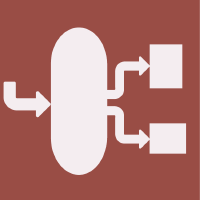Topic Editors
Advanced Processes and Technologies for Wastewater: Collection, Treatment, and Resource
Topic Information
Dear Colleagues,
The journals “Processes,” “Separations,” “Water,” and “Environments” have launched a multi-disciplinary Research Topic on “Advanced Processes and Technologies for Wastewater: Collection, Treatment, and Resource” and are inviting researchers, experts, and professionals from global research institutions, universities, and organizations to contribute their latest research achievements in this field. This Topic focuses on wastewater collection and transport (e.g., drainage system, sewer pipeline, harmful gas, corrosion, water quality, hydrodynamics, or sediment), wastewater treatment (e.g., separation, biodegradation, sedimentation, or adsorption), and wastewater resource (e.g., anaerobic fermentation or wastewater reuse). Manuscripts related to monitoring, modeling, prediction, and system optimization are also welcome. In this Topic, we aim to share the latest research achievements to promote the development of drainage and wastewater treatment systems. The submission of original research and review papers is particularly encouraged.
Dr. Zhiqiang Zhang
Dr. Heliang Pang
Topic Editors
Keywords
- wastewater treatment
- stormwater treatment
- sewer process
- drainage system optimization and management
- wastewater resource recycling
- monitoring and modeling
- multiple phase process
- infrastructure integrity
- inflow and infiltration
- urban hydraulics
- sewer sediment
- waste activated sludge
- anaerobic digestion
Participating Journals
| Journal Name | Impact Factor | CiteScore | Launched Year | First Decision (median) | APC | |
|---|---|---|---|---|---|---|

Processes
|
3.5 | 4.7 | 2013 | 13.7 Days | CHF 2400 | Submit |

Separations
|
2.6 | 2.5 | 2014 | 13.6 Days | CHF 2600 | Submit |

Water
|
3.4 | 5.5 | 2009 | 16.5 Days | CHF 2600 | Submit |

Environments
|
3.7 | 5.9 | 2014 | 23.7 Days | CHF 1800 | Submit |

MDPI Topics is cooperating with Preprints.org and has built a direct connection between MDPI journals and Preprints.org. Authors are encouraged to enjoy the benefits by posting a preprint at Preprints.org prior to publication:
- Immediately share your ideas ahead of publication and establish your research priority;
- Protect your idea from being stolen with this time-stamped preprint article;
- Enhance the exposure and impact of your research;
- Receive feedback from your peers in advance;
- Have it indexed in Web of Science (Preprint Citation Index), Google Scholar, Crossref, SHARE, PrePubMed, Scilit and Europe PMC.



